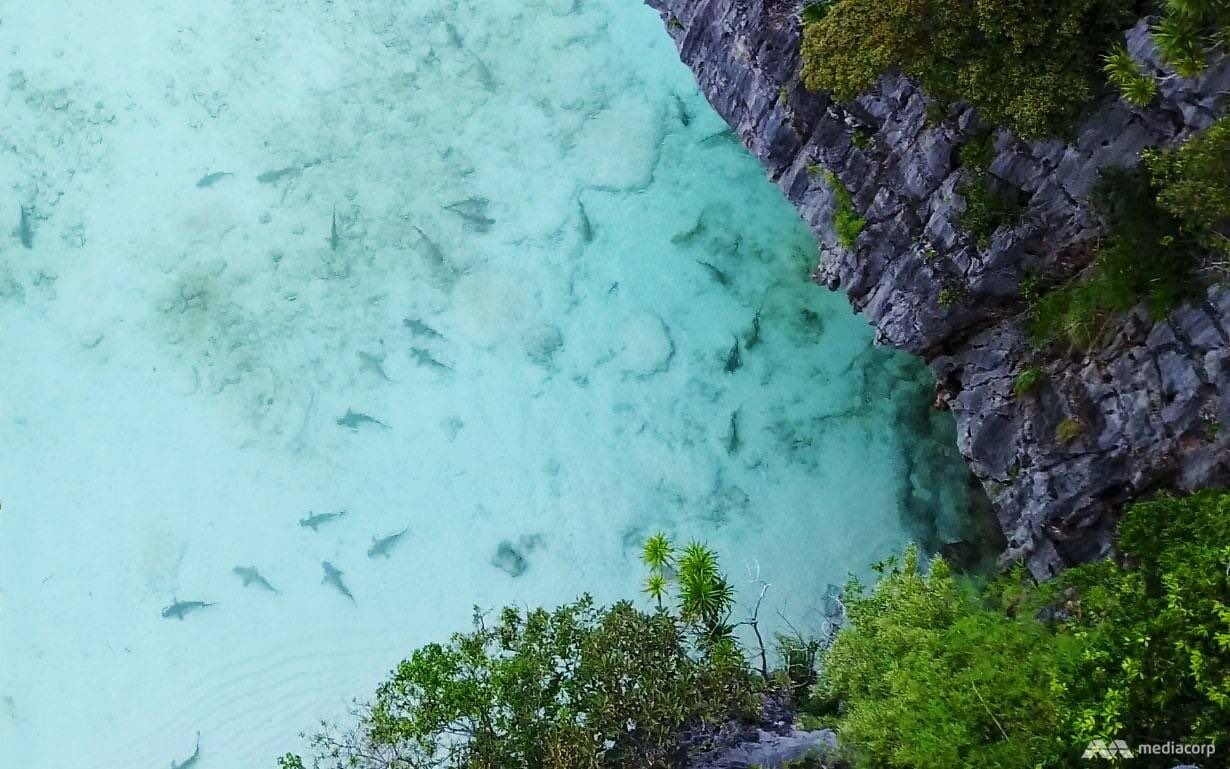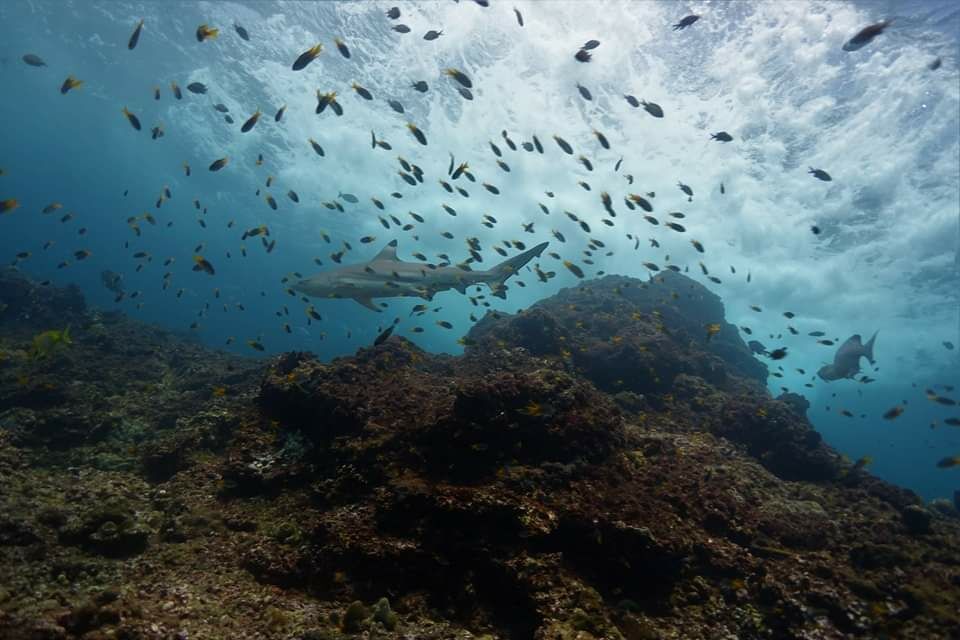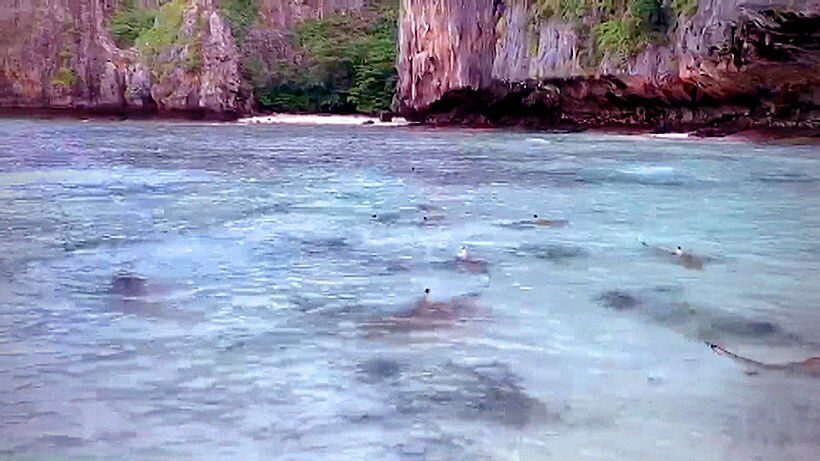Managing blacktip reef sharks in Maya Bay, Thailand

The National Parks Department of Thailand aims to enhance the management of the country’s popular tourist conservation areas following the return of blacktip reef sharks to Maya Bay.
Maya Bay was closed for four years, from 2018 to 2022, to facilitate the recovery of the island’s wildlife. The bay’s popularity surged after the release of the 2000 movie The Beach, featuring Leonardo Di Caprio, which attracted a large number of visitors to the picturesque location, inadvertently damaging much of the island’s marine life.
The closure of Maya Bay helped improve conservation efforts, but there is a risk of it being destroyed once again. According to Reuters, up to 40 blacktip reef sharks swim in the turquoise shallows while approximately 4,000 tourists visit the white-sand beach surrounded by towering cliffs every day.
The number of sharks has increased since the influx of tour boats and tourists caused almost every last one to leave the bay. Limited tourism resumed in 2022, but conservationists warn that shark numbers are declining once again, making it difficult for Maya Bay to strike a balance between preserving a pristine ecosystem and sustaining the livelihoods of those who depend on tourism.
Petch Manopawitr, a marine advisor to Thailand’s National Parks Department, said…
“We don’t talk about closing down everywhere or reducing the tourism numbers, but I think we are talking about managing it wisely.”

But with the number of sharks already dwindling, authorities and conservationists are intent on keeping tourists from swimming in the bay and driving away the baby sharks, which hide in the shallows and coral reefs from cannibalistic adults.
Maya Bay is located on Phi Phi Leh Island, a small limestone island covered in lush greenery, situated in the Andaman Sea off the western coast of Thailand.
Marine researcher Metavee Chuangcharoendee stated that the island has become a nursery for young sharks once again, thanks to the hiatus in tourism.
Metavee and other researchers at the Maya Shark Watch Project use underwater cameras and drones to observe the behaviour, feeding areas, and breeding patterns of sharks.
Between November 2021, when they launched a pilot study, and the end of 2022, they observed a decline in shark numbers as tourists began to return. Blacktip reef sharks, named after the black colouration on their dorsal fins and tails, roam the Andaman Sea and other tropical areas but their numbers are decreasing due to overfishing, according to the International Union for Conservation of Nature.
There are several factors that impact the sharks around Phi Phi Leh Island, including seasonal movement patterns and human activities like fishing.
Metavee mentioned that with the shark population already declining, authorities and conservationists must prevent tourists from swimming in the bay and disturbing the baby sharks that seek refuge in the shallows and coral reefs away from the predatory adults.
“We are hoping that with the restrictions in place, we can mitigate the disturbance to (the sharks). We are doing this research in hopes that we can find the best way to manage and the best way for tourism and the environment to coexist.”

Latest Thailand News
Follow The Thaiger on Google News:


























